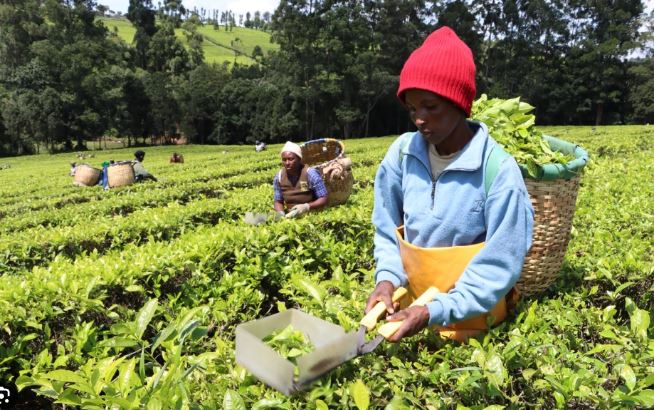

The Kenya Tea Development Agency (KTDA) has blamed the weak currency for
dwindling bonus payments following an uproar by tea farmers.
In a statement Tuesday morning, KTDA attributed
this year's drop in earnings to international market dynamics and currency exchange
movements that were less favourable compared to last year.
The strengthening of the Kenyan shilling against
the US dollar contributed largely to the reduced earnings by KTDA.
“In 2024, the Kenyan shilling traded at an
average of Sh144 to the US dollar, while in 2025 the average was Sh129. This
weaker exchange rate meant that even where international prices were stable,
the amount realized in Kenya Shillings was significantly lower,” the statement
reads.
Farmers have been protesting in the country’s
tea belt areas west of the Rift Valley, where factories announced meagre
payments compared to previous years.
The regions that include Nyamira, Kisii,
Kericho, Bomet, Nandi and Vihiga counties have seen tea farmers earn less
compared to areas east of the Rift Valley such as Nyeri, Murang’a, Meru,
Kirinyaga, Embu and Kiambu.
Borabu MP Patrick Osero, who sits in the
National Assembly Agriculture Committee, says the difference in earnings cannot
be justified as Kenyan tea is sold in the same auction.
“The only alternative is to have our own
auction in Kericho for the West region instead of Mombasa,” Osero said.
The tea agency noted that the drop also
affected tea prices in different regions of the country. For instance, the East
Rift and Kiambu fetched Sh371 per kilo, a drop of Sh46 from last year.
KTDA further stated that Murang’a earned
Sh376, down by Sh42; Nyeri earned Sh388, down by Sh42; Kirinyaga earned Sh400,
down by Sh38; Embu earned Sh404, down by Sh34; and Meru earned Sh381, down by
Sh46.
KTDA explained that these discrepancies exist
because tea from high-altitude zones naturally fetches better prices due to its
higher quality, which is favoured in global markets.
"We are expanding production of orthodox
teas, which fetch higher prices in niche markets, to reduce reliance on CTC
teas," said KTDA in the statement attributed to Corporate Affairs.
"We are also working with the government
to promote value addition, reduce packaging costs, and open new markets
including China. Additionally, we are investing in factory modernization and
energy solutions to cut costs and improve competitiveness.”
KTDA assured tea farmers that it remains
committed to their welfare and to ensuring the long-term sustainability of the
sector.
“The challenges we face are global and
systemic, but by focusing on quality, efficiency, and innovation, together we
will overcome them and secure better earnings in the future,” KTDA stated.


















